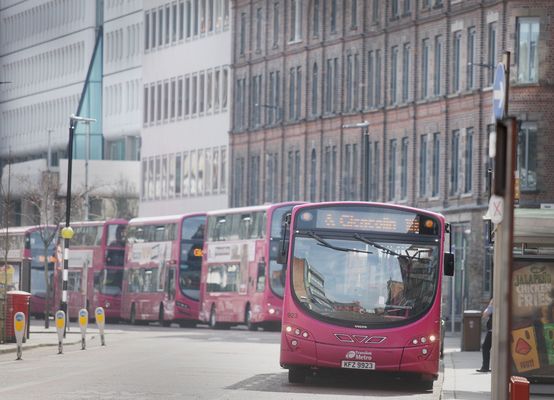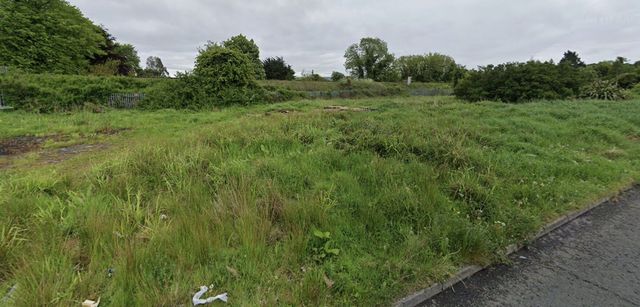FIFTY years ago this week Liz McKee became the first woman in the North of Ireland to be interned by the British government – on New Year’s Day 1973.
Aged only 19 at the time, the news caused shock and outrage amongst nationalists, who were on the sharp end of internment – which began on 9 August 1971 and was used exclusively against the beleaguered Catholic community. That week the Andersonstown News – which was a mere two months old – reported on Liz's internment with the headline 'Elizabeth The First'.
Liz McKee – now Maskey – and her husband Alex, who was himself interned twice, had both of their convictions quashed last week when it was proved the Interim Custody Orders used to detain them were invalid. All internment orders were supposed to have been signed by the then British Secretary of State, Willie Whitelaw, but their orders were never signed.
Liz sat down with the Andersonstown News this week to talk about her experience of internment, and her attempted escape from Armagh Gaol with four other women, including her close friend Tish Holland in March 1973. It was for this escape attempt that the five women received a sentence of nine months, which has now been quashed.
“When they came and lifted us we were in a house in Riverdale, all young people. We’d been banging binlids on the ground and keeping note of where the army and police were. When the army came in they sealed the whole area off but to not alert us of their raid they turned up to arrest us in a furniture van. They were the King’s Own Scottish Borders Regiment and they were very rough with the men. The men were all beaten and forced to run the gauntlet whilst being beaten into the back of the van."
Liz was brought to the Castlereagh barracks for interrogation.
“They put tremendous pressure on you to admit you were involved. I didn’t say anything because I wasn’t involved, but they would sit with two behind you, while another one facing you questioned you over and over again. They would get very close in your personal space to make you feel unnerved and uncomfortable.
“There were no facilities to hold women at Castlereagh, so they had to bring me back to Townhall Street every night. It was disgusting in there. It was where they’d hold people overnight for being drunk and there was sick everywhere. It was a horrible place. That went on in different intervals for three days.
“Eventually they came into Townhall Street on New Year’s Eve and Special Branch produced the internment papers and I was sent to Armagh Gaol. I was the first woman who was interned. Other women interned afterwards including Tish Holland, Margaret Shannon and Anne Walsh. Tish and I were very close, and she’s sadly passed away now.”
Civil Rights Association poster, 'End Internment.' Photographs of internees Liz McKee, Theresa Holland, Margaret Shannon, Ann Walsh, Marie Delaney and Angela Nelson. Liz McKee was the first to be held under the provisions of the Order and was held, with others, in Armagh Prison. pic.twitter.com/gqqBaKxhYq
— Séamus O'Rafferty (@ARDMHACHA81) August 8, 2021
Armagh Gaol was then a crumbling prison, built in 1780 and not renovated since the late 1840s.
“When I was first brought to Armagh Gaol they gave me a bath, which I was a bit glad for, as Townhall Street had been so filthy. After that they produced a uniform for me to put on. I said I wasn’t going to wear it and eventually they gave me back my own clothes. They took me to A1, the first landing on A1, A Wing, and locked me up.
“I was in a cell on my own and it was very quiet. They kept me there until the Governor came to see me. The problem they had was there were no facilities in Armagh for internees, so they kept me on the remand landing with republican prisoners and other prisoners. Tish came in after me in February and we were put into a cell together. It was from A1 where we made our attempted escape.”
In March 1973 Liz and four others made their unsuccessful escape attempt, ingeniously hacking through the window bars and making rope out of nylon wool.
“To escape we used hacksaws on the window bars and made rope from wool. There were five of us involved in it, two women from Derry, another woman from Andersonstown and Tish and myself. We gradually sawed through the bars when people were making noise for a distraction. As it was such an old prison, once we got through the bottom bar, the top bar just came out. We got the idea after seeing the movie Colditz about the British escape from Colditz prison in World War Two. We were all young, slim and agile so we slipped out through the windows.
“When we dropped down to the ground we then had to climb over two doors to get from the exercise yard to the wall. At the wall there was a sentry post which we climbed up through. It was totally engulfed in razor wire. As Tish and I were tall, Tish went at the front and I went at the back and lifted the other three over, but the wire just engulfed us. The other cell which the other three women were in was very quiet that night, so one of the screws went in to check and saw we were all missing.
“When they realised the two internees had gone, things went crazy. At first they couldn’t find us but Tish was on the wall stuck in the wire. We eventually decided to let them know where we were, and they had to send a soldier in with huge three-foot wire cutters to cut all of the wire away so we could get back down again. Our clothes were completely ripped and our legs were also torn and cut.
PROTEST: A woman's only protest was held on 7 January 1973 in Andersonstown against Liz's internment, led by Máire Drumm (right)
“They gave us all nine months for the attempted escape on top of our internment order. They would bring you up every 28 days in front of a commission who decided whether you would be re-interned or not again, and they did that over and over again.
“Tish and I made a case to the governor that as we had now been sentenced, we shouldn’t be on the remand wing and should be up with the republican prisoners who had been sentenced. We told Hugh Cunningham, the Governor, that we were Special Category prisoners and should be sent up with the other republican women who had been sentenced, which they did.” Liz served a total of 18 months in jail.
Speaking about the decision last week to quash her and Alex Maskey’s convictions, as happened with Gerry Adams’ in 2020, Liz said it showed just how wrong the British government were to bring in internment. The conviction had a major impact on the couple.
“Those convictions had a long impact on us. They restricted our ability to travel to places where you needed a visa and also impacted on what career you had. I was a nurse before I was arrested so I wasn’t allowed to nurse anymore.
“Alex and I knew of each other at the time, but we didn’t know each other well. We only realised last week that when he attempted to escape it was the same week that we attempted our escape from Armagh! We were illegally held, they put us in custody illegally. It just shows you how wrong the British were to bring internment in here, how it negatively affected the history here in the North. There were so many innocent people interned and it was all on hearsay.”
QUASHED: Alex and Liz Maskey with their solicitor upon having their convictions quashed
“When you went to those commissioners, there was a Special Branch man behind the screen saying ‘I think she’s in the IRA’ and ‘I think she did this’ etc and that’s what their evidence was.
"After we finally got released we were still subject to harassment. You got stopped everywhere you went, searched and harassed. I think getting the convictions quashed is another chink in the British establishment, which proves how wrong they were to bring in internment.”







